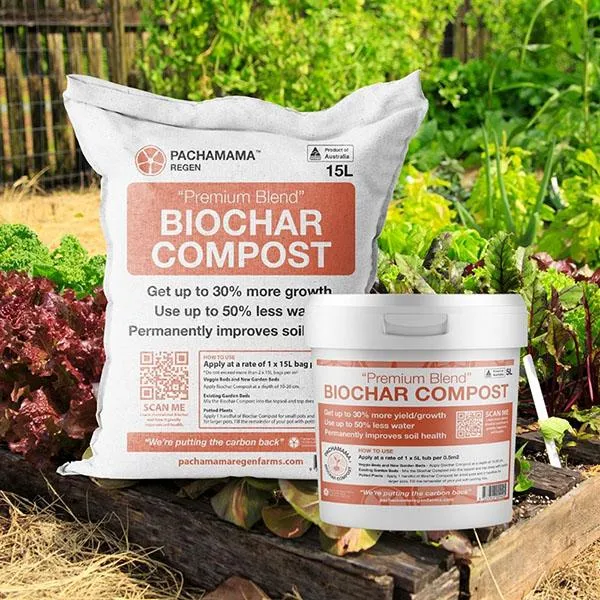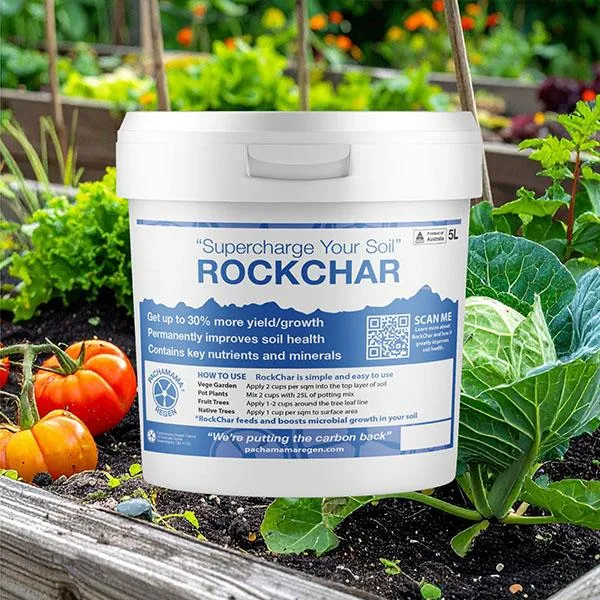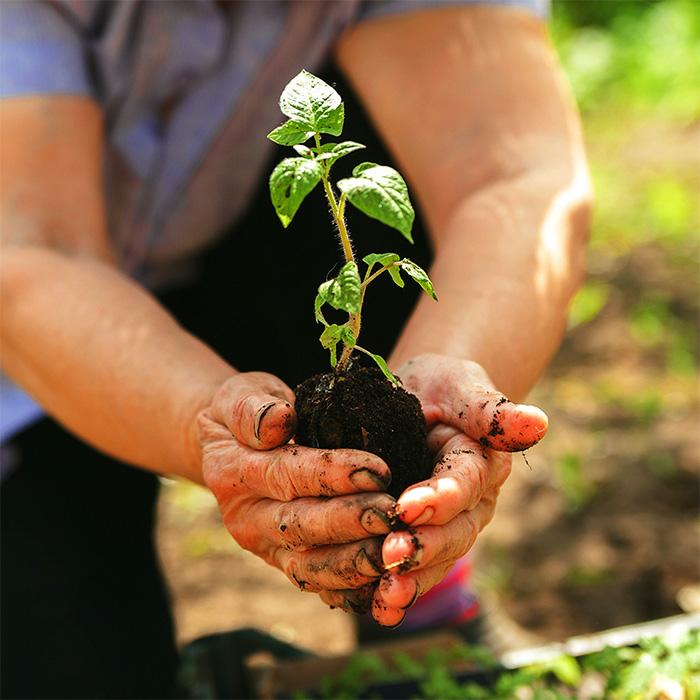Insulating your Soil with BioChar
Soil Insulation in Australia Using Biochar: Boosting Water Retention and Microbial Mobility
Australia’s climate is tough on soil. Between long dry spells, sudden downpours, and increasing temperature extremes, farmers and gardeners alike are looking for ways to keep their soils healthy and resilient. That’s where biochar comes in—a natural solution that not only improves soil insulation, but also enhances water retention and microbial mobility.
Think of biochar as a protective blanket for your soil. It helps keep moisture in, supports beneficial microbes, and makes crops more resilient against Australia’s challenging conditions. In this blog, we’ll unpack how biochar works, why it’s perfect for Australian soils, and how you can use it to transform your land.

What is Biochar and Why Does It Matter for Soil Insulation?
Biochar is a carbon-rich soil amendment made by heating organic matter (like wood chips or crop residues) in a low-oxygen environment—a process known as pyrolysis.
Unlike regular charcoal, biochar is specifically designed for soil improvement. Its porous structure acts like a sponge and an insulator:
• It reduces heat stress in soils by buffering temperature changes.
• It enhances water retention, keeping precious moisture in the root zone.
• It provides “housing” for beneficial microbes, improving microbial mobility.
For Australian farmers dealing with sandy soils or unpredictable weather, this is a game-changer.
Why Soil Insulation is Critical in Australia
Australia’s agricultural soils are some of the oldest and most weathered in the world. Add to that the pressures of:
• Heatwaves that dry soils rapidly
• Drought cycles that make water management tough
• Sudden heavy rains that wash away nutrients
Soil insulation—the ability of soil to regulate temperature and moisture—is essential for protecting crops and pastures. Without it, plants suffer from stress, roots dry out, and microbial life struggles to survive.
Biochar offers a natural way to insulate soils, creating a stable environment where crops can thrive even under extreme conditions.

How Biochar Improves Water Retention
One of the biggest struggles for Australian farmers is keeping water in the soil long enough for plants to use it.
Here’s where biochar shines:
• Its porous structure traps water molecules like a sponge.
• It releases water slowly to plant roots, reducing the need for constant irrigation.
• In sandy soils (common across much of Australia), biochar reduces leaching, keeping water and nutrients where they’re needed most.
Farmers in dry regions report that biochar can reduce irrigation needs and improve resilience during droughts—a critical advantage in Australia’s climate.
Biochar and Microbial Mobility: Supercharging Soil Life
Healthy soils aren’t just about water and nutrients—they’re alive with microbes, fungi, and bacteria that support plant growth.
Biochar plays a unique role in boosting microbial mobility by:
• Providing shelter in its porous structure, where microbes can thrive.
• Helping beneficial fungi form stronger root networks.
• Improving nutrient cycling, making minerals more available to plants.
Think of biochar as building a microbial city under the soil surface. With more “homes” and pathways, microbes can move, interact, and support plant health more effectively.
Practical Applications of Biochar for Soil Insulation
If you’re in Australia and want to try biochar, here are practical steps:
1. Charge your biochar first - Raw biochar can absorb nutrients before plants get them. “Charging” it with compost, manure, or organic fertilizer ensures it’s nutrient-rich from the start.
2. Mix with compost or soil - Apply biochar by blending it with compost and spreading it evenly over fields, pastures, or garden beds.
3. Focus on sandy soils - These soils benefit the most from biochar’s water retention abilities.
4. Use it in irrigation zones - Place biochar where water is applied to maximise absorption and minimise runoff.

Real-World Benefits of Biochar in Australia
Across the country, biochar is proving its worth:
• Viticulture in South Australia – Vineyards use biochar to improve water-holding capacity in sandy soils, reducing irrigation demand.
• Queensland cropping systems – Farmers are mixing biochar with compost to restore degraded soils and boost yields.
• Urban gardens in Sydney & Melbourne – Biochar helps gardeners conserve water during summer heatwaves.
It’s not just theory—it’s happening right now on the ground.
Environmental Benefits: Biochar Beyond the Farm
The impact of biochar goes well beyond soil insulation. It also:
• Sequesters carbon – Locking carbon underground for centuries, reducing greenhouse gases.
• Improves water quality – By filtering pollutants, it reduces runoff into rivers and groundwater.
• Supports climate resilience – Healthier soils mean stronger crops in the face of extreme weather.
Charcoal, by comparison, releases carbon when burned—biochar keeps it locked safely away
Biochar and Regenerative Agriculture in Australia
Biochar isn’t a standalone solution—it works best when integrated with other regenerative agriculture practices, including:
• Cover cropping – Adding organic matter and reducing erosion.
• Agroforestry – Using farm waste biomass to create biochar in closed-loop systems.
• Reduced tillage – Preserving soil biology while biochar supports microbial mobility.
Together, these practices create a resilient farming system that thrives in Australia’s harsh climate.
Ready to Improve Your Soil with Biochar?
Biochar isn’t just another soil additive—it’s a long-term investment in the future of farming in Australia. By improving soil insulation, water retention, and microbial mobility, biochar creates soils that can stand up to the climate challenges we face today.
👉 Get in Touch - Product details and personalised advice.
👉 Shop Online - Latest products from Pachamama Regen
👉 Pachamama Regen Resources - Check out our Biochar Resources, How to Guides and Information
Your crops—and the planet—will thank you.











